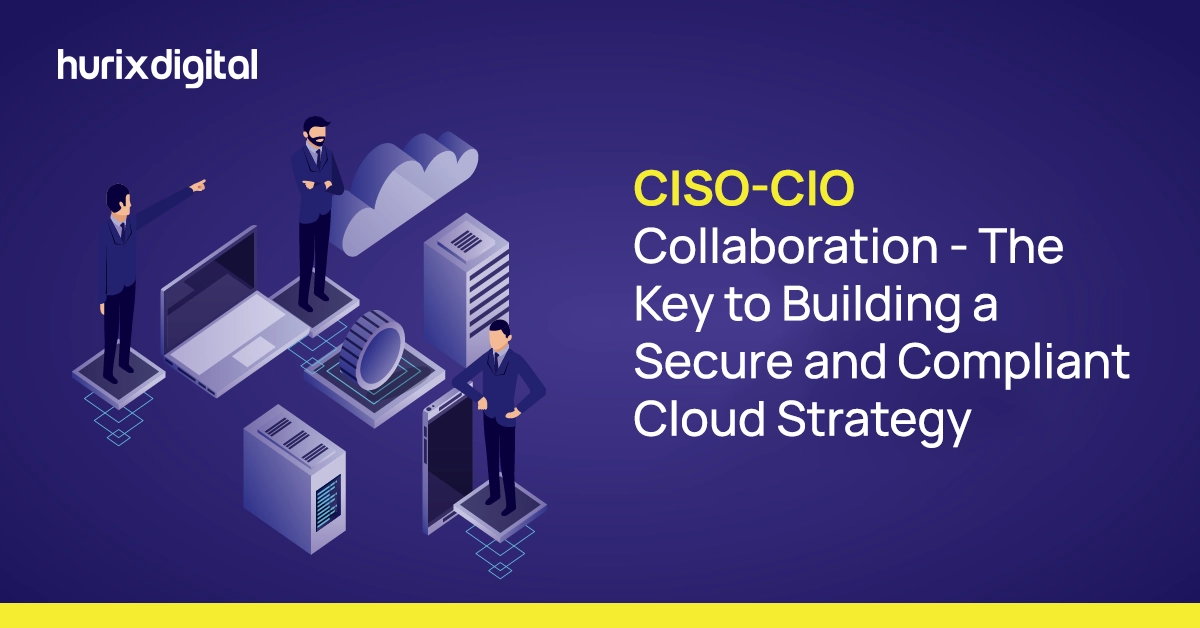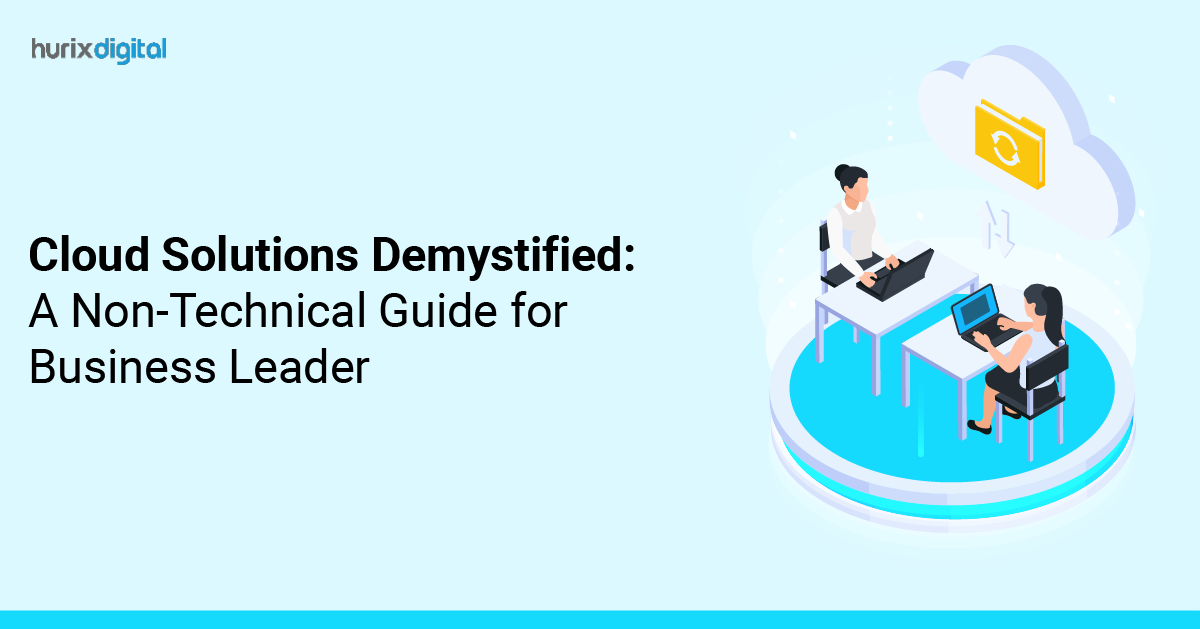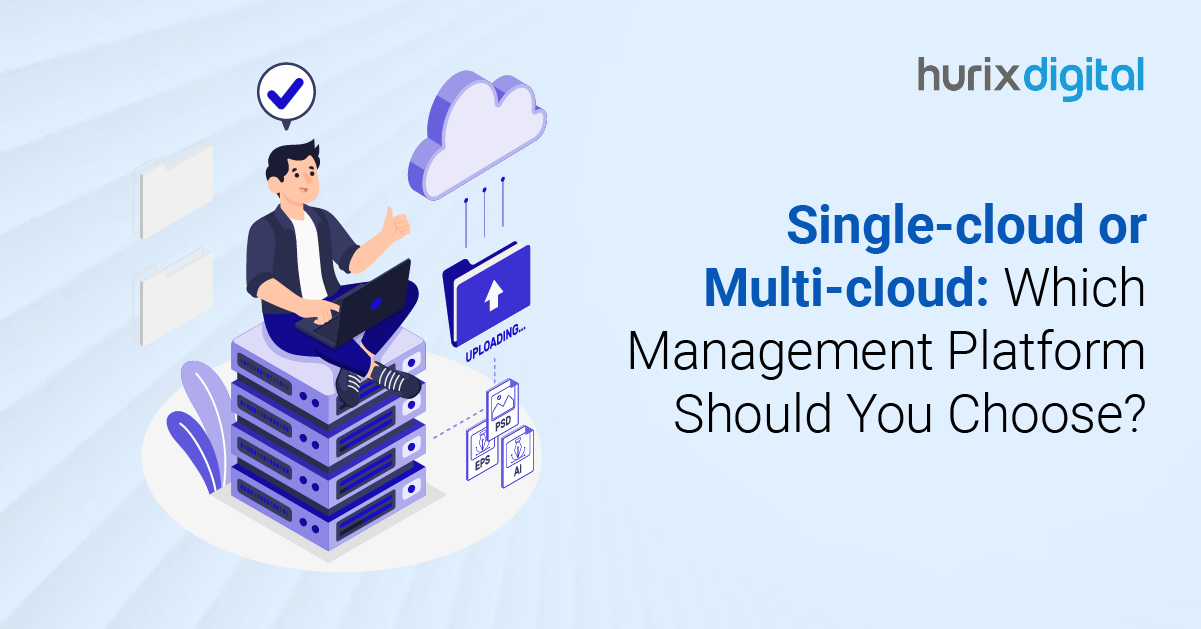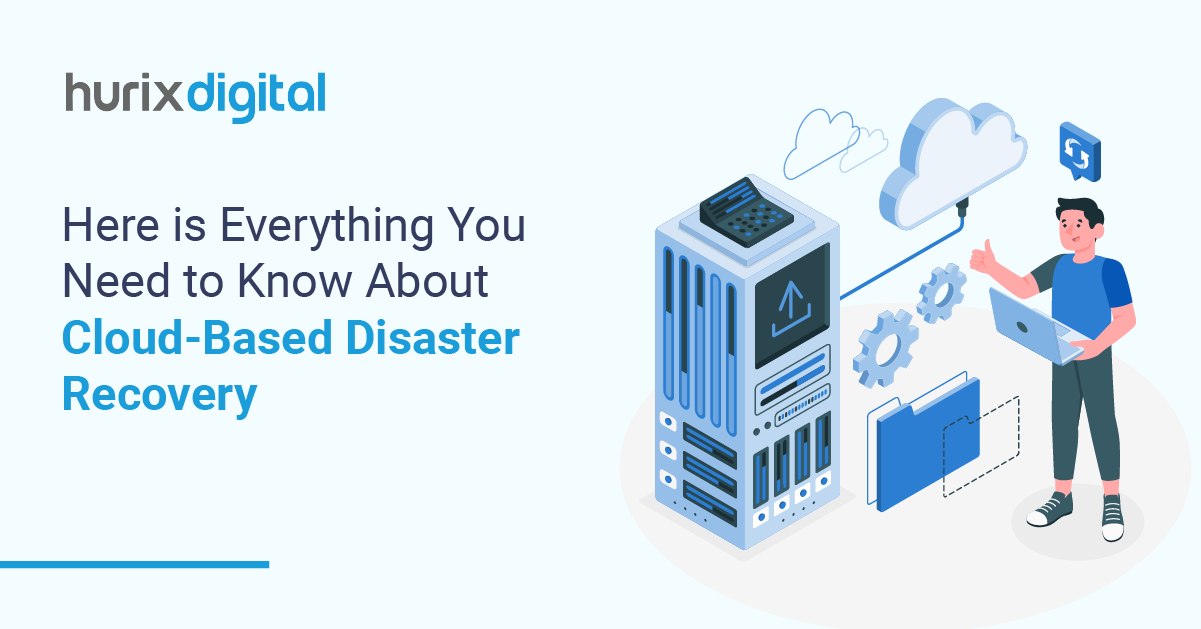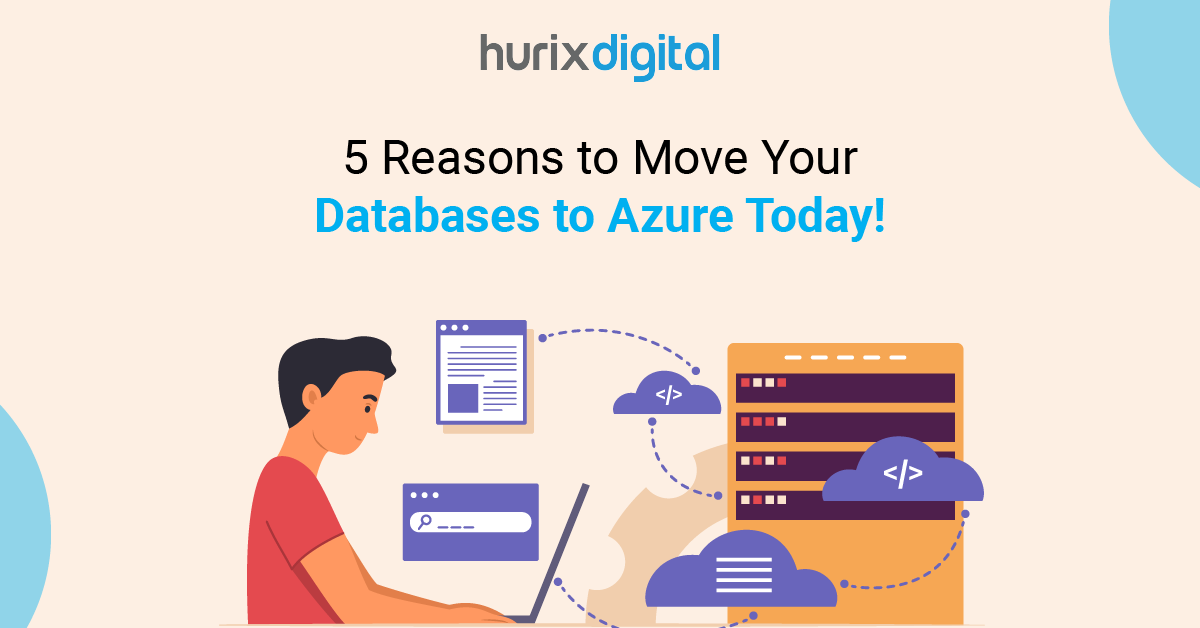
5 Reasons to Move Your Databases to Azure Today!
Summary
This blog examines traditional database hosting drawbacks and Azure Cloud benefits, including scalability, security, and cost-effectiveness, for potential migration suitability.
The Foundation of Database is where databases are typically hosted on traditional servers, which are physical machines that store and manage data. These servers are connected to a network and provide a platform for applications to access and interact with the database. In the traditional database hosting the data within the database is stored on the server’s hard drives, and the server also contains software and hardware components that oversee the management, backup, and security of the database.
However, traditional database hosting comes with its own set of drawbacks:
- Manual Maintenance Burden: Keeping the system running smoothly requires constant attention. This includes software patching, security updates, and database backups – all manual tasks demanding time and technical expertise.
- Hard Disk Vulnerability: The Achilles’ heel of traditional storage – physical hard drives. Prone to corruption due to mechanical failures or other unforeseen events, regular backups are essential to safeguard your data.
- Cost Considerations: The upfront investment can be substantial. Hardware costs, software licenses, and dedicated IT staff for ongoing maintenance add up quickly. Additionally, electricity and space requirements contribute to the overall expense.
- Scalability Limitations: Traditional servers have a limited capacity for storage and processing power. As your data volume grows over time in industry, scaling becomes a challenge in traditional systems. Here Adding more storage or processing power usually means buying and configuring new hardware. It is not only time time-consuming process but also an expensive process.
Table of Contents:
How can Databases be Hosted on Azure Cloud?
1. On VM Deployed on Azure Cloud (IaaS)
The middle-way approach to database hosting before moving fully to the cloud involves setting up the database on a virtual machine (VM) rather than fully adopting a cloud-based solution. This middle-way approach is by installing the database on a VM, organizations can enjoy some of the benefits of cloud hosting, such as scalability and easy resource allocation, parallelly maintaining control over their data and infrastructure.
With the help of this approach, we can easily adapt to the cloud, giving IT teams the opportunity to test and optimize their database setup before fully migrating to a cloud computing solution. hosting the database on a VM provides a level of comfort for organizations that be afraid to adapt cloud-hosted environment fully.
It has its own set of drawbacks:
- Limited Scalability: The middle-way approach doesn’t offer the same level of scalability as a fully cloud-based solution provides. This can limit the ability to quickly expand resources based on changing business needs or data.
- Higher Costs: It is tough to Maintain hardware and infrastructure on-site, it can be more expensive as compared to a fully cloud-based solution. Because hardware maintenance, upgrades, and IT support leads to more cost.
- Limited Flexibility: The middle-way approach may not offer the same level of flexibility and agility as a fully cloud-based solution. This can limit the capacity to quickly adapt to changing business requirements.
- Potential Security Risks: Keeping a database on servers at a physical location can be risky. These servers are easier to steal, damage, or break into compared to cloud storage, which has stronger security features and backup recovery options.
- Downtime and Maintenance: Here maintaining a database requires regular maintenance and updates, due to which sometimes may lead to downtime and problems in business operations for larger organizations. Fully cloud solutions offer better uptime due to their redundant infrastructure and disaster recovery options.
2. Using SQL/NoSQL Services of Azure Cloud (PaaS)
The days are gone working with physical servers for your databases. The modern approach with Microsoft Azure uses fully managed services like Azure SQL Database, Cosmos DB, and options for PostgreSQL, MySQL, and MariaDB. These services take care of everything from setting things up to handling backups, maintenance, and even scaling your database as your needs grow.
Here’s how it works: simply pick the database service you need on Azure, configure it to your liking, and connect your applications and tools – all done easily through the user-friendly Azure Portal or handy APIs. This cloud-based approach is a big leap forward compared to traditional methods using on-site servers or virtual machines. With Cloud Database benefits, you get more flexibility, easier scaling, and also lower costs that fit the organization’s budget.
Also Read: Top Cloud Infrastructure Providers – Who’s Leading the Pack in 2024?
Top 5 Reasons to Migrate Your Databases to Azure
1. Why Scalability?
Are you worried about your database infrastructure reaching its capacity? Traditional on-site solutions can be rigid, forcing expensive hardware upgrades just to store more data. The Azure database migration approach is different. It lets you easily scale your database storage and processing power up or down as needed, on the fly. This ensures your database can grow alongside your business without any hardware limitations.
2. What About Security?
Keeping your data safe is critical. Data security is very important. Azure encrypts your data at all times and protects it from online threats from advanced threat protection and Azure also uses multi-factor authentication for security. Plus, Microsoft handles security updates, so your IT team can focus on what matters most to your business without worrying about security.
3. When Does Managed Services Matter?
Managing on-premises databases can be a time-consuming task, it requires a significant IT expert. Azure offers a variety of managed database services that take care of heaving lifting. These services handle tasks like provisioning, patching, backups, and performance optimization. This frees up your IT team to focus on other tasks while ensuring your databases are always up-to-date and working properly.
4. How Can Cost-Effectiveness Be Achieved?
Tired of the upfront costs associated with hardware and software for on-premises databases? Azure offers a pay-as-you-go pricing model. You only pay for the database storage and compute resources you actually use. This eliminates the need for expensive upfront investments and optimizes your cloud database budget. Additionally, Azure’s managed services further reduce costs by minimizing the need for in-house IT staff dedicated to database management.
5. Where Does Global Reach Come In?
Do you have a geographically distributed user base? With Azure, your database is accessible anywhere in the world, quickly. This is ideal for businesses with international reach. Plus, Azure’s data centers are spread out globally, so you get high availability and disaster recovery – meaning minimal downtime for your business, wherever your users are.
Azure database migration helps you unlock a vast array of benefits that extend beyond just scalability and security. The managed services, cost-effectiveness, and global reach offered by Azure empower your business to focus on innovation and growth while ensuring your data is always secure and accessible.
Check out EXCLUSIVE: Hurix Digital Seamlessly Stabilizes a Leading Utilities Provider’s IT Infrastructure and Services
Conclusion
In conclusion, there are various types of hosting databases available, each with its own unique features and benefits. However, Azure database migration can offer numerous advantages such as scalability, flexibility, and improved performance and also Cost-effective cloud solutions that is good for your organization. By following a structured approach and seeking the assistance of Cloud Infrastructure Services Hurix Digital will help you with successful Database cloud migration. with its team of seasoned experts.
Get in touch with us to know more!

DB Consultant – Cloud Services
Saloni is an experienced DB Consultant with strong knowledge of SQL and NoSQL DBs. She is a Certified Microsoft professional for performing complex Database migration tasks and other requirements of clients from different geographical areas. Whenever she is assigned to a task for a technology she is not aware of, she performs it like an experienced professional with her self-learning skills.
